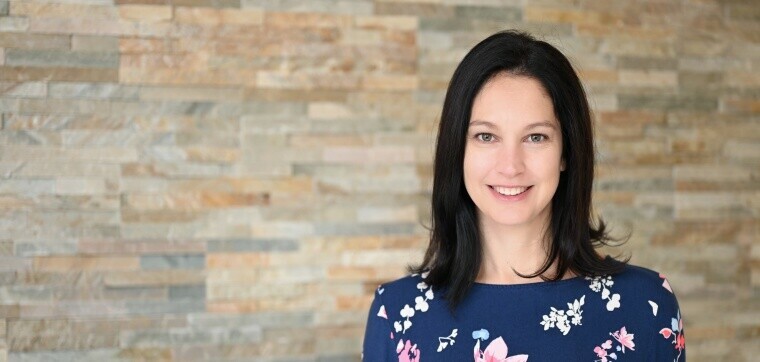Since October 2022 Softline has been operating under the brand name Noventiq.
Softline has been present in the Central and Eastern European region for more than two and a half years and has been characterised by dynamic growth ever since. General Manager Zoltán Mészáros spoke about the establishment of the six subsidiaries, and he also revealed what motivated him in the start-up phase and what advice he would provide to career starters interested in IT.
Have you consciously prepared for this career from the outset?
I graduated from the Faculty of Transportation Engineering, so we can say that my basic profession is not really close to IT. Computer science had been a part of my life long before; I started using computers and various design programs in high school. When Windows 95 came out, I stumbled in front of the store so I could try it out as soon as possible. While writing my dissertation, it became clear to me that if I became a transportation engineer, I would still prefer to be employed on the business side. Then, when I arrived into a decision-making situation, I voted for IT. I was able to become acquainted with computer technology as an engineer, so the multitude of possibilities inherent in it immediately became apparent to me.
How did you join the Softline Group? Can you tell us a little bit about the beginnings?
In 2017, Softline had a clear idea of how it wanted to increase its European presence. The company was already present in more than 40 countries and, as a global Microsoft partner, began negotiations with the Redmond company to enter the Romanian, Hungarian, Bulgarian, Serbian, Slovenian and Croatian markets. As a result, an agreement was reached to open subsidiaries in these six countries. The agreement was followed by organic expansion, so our paths crossed with those of the company. I have followed Softline's activities with interest before, but the opportunity for regional business development was particularly inspiring. The countries in question were not unknown to me either, I had worked in these markets before as a business development consultant. This interest was followed by a face-to-face meeting, which was particularly inspiring to me, and I found it a huge challenge to start a new business at the regional level. Based on my existing experience, I quickly developed a picture of how I would like to build a highly professional, responsive and profitable company. My colleagues and I have been building on this vision ever since.
You have been in your current position at Softline Group for two and a half years. What are you most proud of lately?
Given that the company has set foot in our region in an organic way, without acquisitions, the start-up team has received tremendous attention. In this situation, therefore, it was critical to find determined and talented colleagues. In the two months after the start, we two made the regional team, and today we are close to 30, so I remember the start with great pride. This process, and the business results we have achieved thanks to our outstandingly performing colleagues, is also recognised by the parent company, and we are considered to be the best starting region so far.
What are the past experiences that define your leadership style to this day?
Even during my studies, I started working for Microsoft as an external contractor and later spent 12 years at the company as an employee. I can say without exaggeration that this period has fundamentally determined my attitude towards the field of IT and teamwork in general. In my previous work, I was able to work in an environment that brought out the greatest possible performance from the individual and the team. It was here that I became convinced in the view that all this was possible without creating a depressing, negative environment. Of course, this doesn’t mean that a leader doesn’t have to be tough; determined sometimes, but this type of attitude has taught us that productivity can only be achieved by long-term sustainability. In terms of performance, I don’t focus on the successes or failures of a given moment, but rather on steady progress and long-term successes.
How has Softline experienced the challenges of the recent period, the difficulties caused by the epidemic and new situations?
In terms of these six countries, teleworking has been a feature of our operations so far, and I myself often avail of it. Hence, the vast majority of meetings took place on an online platform, both within each country and in liaising with the company headquarters. Intensive, expert-level use of these tools is expected to serve our customers anyway. On the part of our customers, we saw that, at the beginning of the quarantine period, the demand from the client side for setting up services supporting teamwork and creating a system for working from home clearly increased. Since then, however, other services and needs have gradually but noticeably been re-focused.
What professional plans do you have for next year?
Further stabilisation plays the main role; we are currently under deliberate and continuous development. The Central and Eastern European subsidiaries were established two and a half years ago and have already gained significant market share. Our goal is to expand our portfolio through specialised, value-added services that others cannot provide and to be present with highly knowledgeable, recognised professionals in these fields.
What trends will determine the coming years in the field of IT?
On the one hand, I think that companies have been given a clear signal that they need to rethink their planned IT investments and set up new priorities. Infrastructure developments that receive sporadic attention, such as the deployment of Teams or mobility, have come to the fore. Companies reacted extremely quickly and implemented their investments in this direction, which had been planned for years, in a short time. In addition to all this, I think companies are starting to assess the effectiveness of work from home and in the office for the company as a whole in a conscious manner. Home office support will also be reconsidered from a security perspective as, in addition to accessibility, security is also of key importance. The trend toward teamwork, working from home, and security is clear, and the process of moving to the cloud also remains in focus. Public cloud services have also proved their benefits in the recent past; whether we think of Microsoft, Google or Amazon, they can all serve business needs stably and securely.
What advice would you give to someone who is just starting work in IT?
I don’t think there is a professional who knows all areas of IT; the time of generalists is over. Marketable knowledge consists of very deep experience gained in one or two areas. I would encourage everyone to highlight for themselves an area where there is room for further development, from cloud to data analysis, from infrastructure to artificial intelligence, and base their knowledge on one of these.
How do you start your workday?
COVID-19 also rewrote most of my workdays. I get up early, even when I’m not traveling, and usually start the day athletically, as dog walking is my first on my to do list. In the meantime, I go through the emails and then continue with running. If there aren’t too many online meetings scheduled for the day, I usually do my work from the office. I consider personal presence important; it also provides an opportunity for shorter conversations that may stop us from scheduling a meeting online.
You have an active presence on LinkedIn. What role do social media play in your professional life?
In terms of social media, I basically use LinkedIn only, which gives a good overview of professional innovations. I am interested in who thinks in what directions, what training he has taken or what kind of career he is moving in. Previously, these could only be heard through an acquaintance. I usually run through the news with a clear head in the morning, even drawing motivation from them.
Photo by Enterprise









